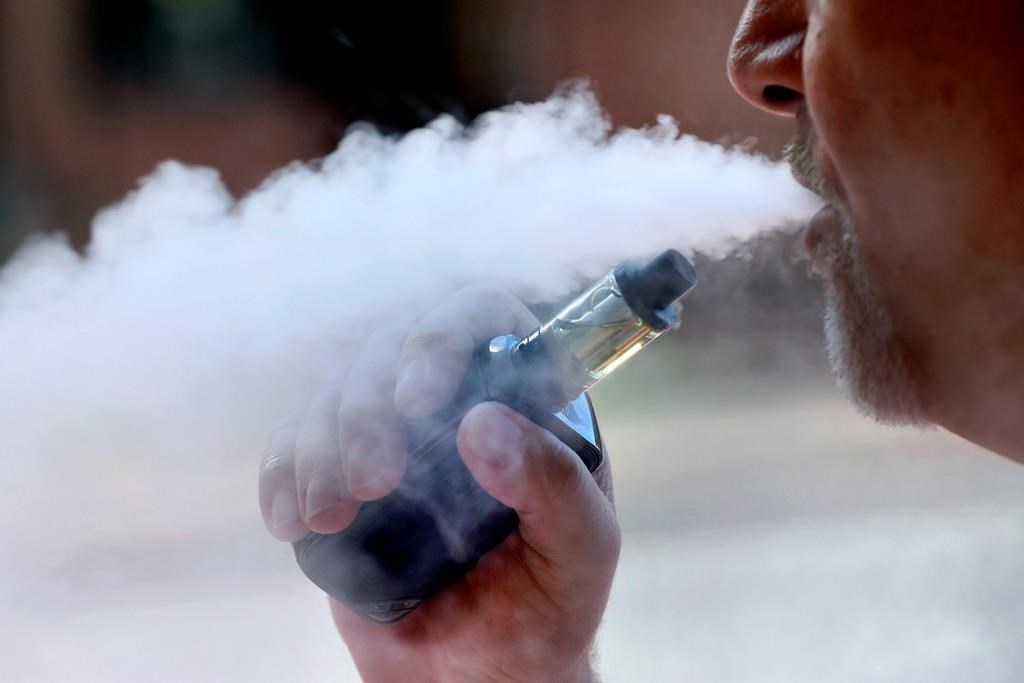Alberta’s chief medical officer of health is recommending Albertans who smoke or vape take measures to quit the habits to decrease the impact of a coronavirus infection.

“What we’ve seen in other jurisdictions is that there does seem to be a link to things like smoking or vaping and having a more severe outcome after a COVID-19 infection,” Dr. Deena Hinshaw said on Monday.
A Stanford University study found those who vaped were five times more likely to be diagnosed with the novel coronavirus than non-users. The study caused some United States lawmakers to try to temporarily ban the sale of e-cigarettes until more research could be done on their effects.
“It’s a good reminder for those who are interested in cutting down or quitting those activities to look at the supports that are available like the Alberta Quits help line,” Hinshaw said.

A 2016 study found “ample evidence” that cigarette smoke weakens the defensive function of the immune system. One from 2017 found that even social or occasional smoking can cause immense damage to a person’s body, leading to problems like high blood pressure, high cholesterol and hypertension.

Get weekly health news
There is “conclusive evidence that smoking is associated with an increased risk of respiratory viral infection,” according to the results of the Surgeon General’s 2014 report.
Hinshaw said her message was focused particularly on Alberta’s youth.
“Obviously this is more for those who are teens who are vaping or smoke. This is a great opportunity to think about supports that are available for them to quit, to reduce the chances of a more severe outcome should they become infected,” Hinshaw said.
In a 2018-19 survey, the federal government said 34 per cent of students in grades 7-12 said they’d tried vaping. Despite it being illegal to sell e-cigarettes to kids in Canada, 54 per cent of youth respondents said it would be “fairly easy” or “very easy” to get an e-cigarette with nicotine if they wanted one.

— With files from Global News’ Emerald Bensadoun



Comments
Want to discuss? Please read our Commenting Policy first.